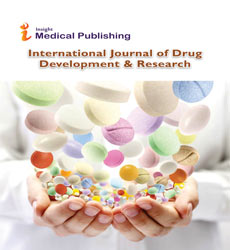Abstract
A Statistical study of effects of bacterial Decaffeination on Beverages
Caffeine degradation has been popularized due to its promising scope in food applications and environmental safety. Hence we conducted a study of bacterial caffeine degradation and its effect on sensory qualities through a survey and reported the data using Correspondence Analysis- Symmetrical Model of SPSS software to identify key sensory attributes and study what factors could lead to them. The decaffeinated beverages showed undesirable sensory attributes, especially those containing milk and other extraneous substances and hence it was concluded that decaffeination is most desirable during raw material processing. Also a background study of the bacterial growth curve and its relation with caffeine degradation and N-Methyl Urea formation was done using Origin software and ways to ensure the release of non-toxic products were hypothesized. An alternate glyoxylate pathway was considered to avoid the release of toxic metabolites, which is possible by media starvation. Thus avoiding degradation of sensory qualities and alternating the production of N-methylurea would reflect positively on human consumption and acceptance and this can be a scope of future study.
Author(s): Siddharth Sharan, Naina Thangaraj, Bishwambhar Mishra, Suneetha V.
Abstract | Full-Text | PDF
Share this

International Journal of Drug Development and Research peer review process verified at publons
Abstracted/Indexed in
- Google Scholar
- Genamics JournalSeek
- China National Knowledge Infrastructure (CNKI)
- CiteFactor
- Scimago
- Directory of Research Journal Indexing (DRJI)
- WorldCat
- Publons
- MIAR
- ResearchGate
- University Grants Commission
- Secret Search Engine Labs
- Euro Pub
Open Access Journals
- Aquaculture & Veterinary Science
- Chemistry & Chemical Sciences
- Clinical Sciences
- Engineering
- General Science
- Genetics & Molecular Biology
- Health Care & Nursing
- Immunology & Microbiology
- Materials Science
- Mathematics & Physics
- Medical Sciences
- Neurology & Psychiatry
- Oncology & Cancer Science
- Pharmaceutical Sciences


